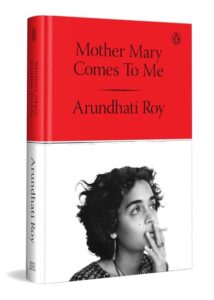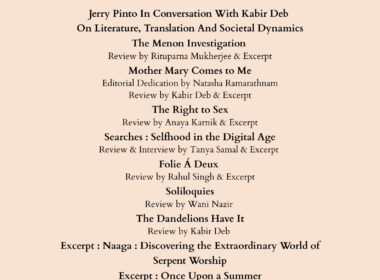A Book That’s A Bitter Pill To Heal Our Wounds
By Kabir Deb
The moral tendency that society inserts in people is to prevent them from expressing their personal extremities, and limit their honesty, when the subject is a guardian figure. The rise of unjust power stems from our homes or families and it broadens itself to the socio-political spectrum. Arundhati Roy’s debut novel The God of Small Things, is a story about a dysfunctional and erratic family, which does not move away from its focal point by addressing the life of a disturbed and complex mother and how she bestows her wounds to her children. It has a political plot because, in reality, children of disturbed families inherit sordid behaviour and do not refrain from creating chaos. Roy ingrains it in her reader’s mind that familial turmoil has an impact on several generations and it should be written about wearing a political lens. The novel’s wit, sensitivity and depth still make it one of the best books in the list of Booker Prize. Roy exhibited bravery from a point that often goes missing.
Most writers while jotting down their thoughts in their memoirs frame their lives by keeping many elements in mind. They have to ensure that no reader gets triggered; make the book safe for people to read and hesitate in being entirely honest to their own ‘self’ because to implement it they need to be bare to make sense of their lives. Arundhati Roy’s memoir Mother Mary Comes to Me, on the other hand, is a punch, a sharp incision and also a catharsis, because through this she brings out an innate, intimate injury – a place that people usually do not like visiting. It is dark and exhaustive with a relentless cascade of thoughts. Yet, like in all of her books, she does not appropriate with the crux of art, which itself is an emulation of life, and swings towards us an honest take on what is present around us, while we are running away from them. While The Ministry of Utmost Happiness and The Seditious Heart dealt with the politics of the outside world, her memoir is a take on the unsettling politics of guardianship. It dives deep to rediscover love, abuse, and a personality.
The erratic mother of her debut novel is a reflection of her own mother, who has inspired her in many ways to deal with her own demons. Mary Roy, who she calls a gangster, came out of an abusive marriage, and chose to live on her own terms by being a single mother. But if someone decides to make a life with no conditions attached, the decision should be accompanied by the realization of freedom. Roy mentions in her memoir that her mother’s sporadic behaviour towards her and her brother was a consequence of her broken marriage. Yet she developed an educational establishment, where her kind and generous behaviour towards the students, was a contrast to her behaviour towards her children. Roy recalls it with affection towards her mother by writing my mother unloaded the burden of her quarrels and the daily dose of indignity that she had to endure on to my brother and me. We were the only safe harbour she had. It is not necessarily an act of love. It is an act of acceptance where Roy embraces her mother’s chaos, from a certain distance, to know its entirety.
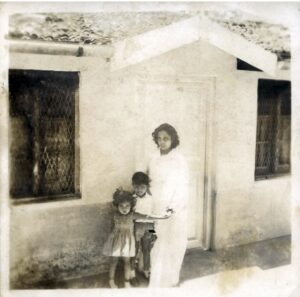
Image Courtesy of Penguin Random House India
It is generally considered that silence is an inherent part of acceptance. But in the case of Roy, the act of dissent against her mother became primal and it was not just a tooth-and-nail fight. There was dissent in her silence, in the lifestyle that opposed her mother’s choices and the idea of independence she inculcated, irrespective of Mary Roy’s presence. Even her escape ran in a circle since she had the understanding of her mother’s actions. She writes, my escape route always circled back to what I was trying to escape from. Mary Roy’s escape from her abusive husband gave her the courage to stay defiant in her decision to escape from abuse. Like most mothers, Mary was also conscious about her daughter’s appearance, which the latter considered as an invective attitude. So, when Roy writes, it felt as though she had cut me out – cut my shape out – of a picture book with a sharp pair of scissors and then torn me up, she is actually criticizing the suffocation her mother used to spread around her. Many people consider criticizing one’s parents as a benefit of privilege or an act of bitterness. But one should remember that parents are human beings too, and they can be wrong, which makes them a subject of criticism. Roy’s dissent with her mother is what we call a fight-flight mechanism.
Roy, in this book, does not refrain from identifying her courage with her mother’s perseverance. That being said, Mary Roy’s abusive behaviour towards her children had a tinge of malice since she had to bring them up, without any kind of help. Rather, even her family, tried to dismantle her independent attitude. She did not receive her due inheritance, which made her stand for equal share for daughters in inheritance. Mary Roy Vs. State of Kerala and Others, still remains a significant case which sheds light on the inequality in family that normalizes inequality on a larger horizon as well. Roy does not dehumanize the malice in her mother since when battles are fought alone, a build-up of exhaustion is not abnormal. The writer mentions about a particular uncle who wanted to violate her in her childhood. It had a deep impact on her since she had to find excuses to stay away from her uncle. Mary’s fury against men was channelized into abuse on her son. But, at the same time, she stood against boys who were shaming the altering body of adolescent girls. She frowned a bra before them and said: This is a bra. All wear them. Your mother wears them. Your sisters will too soon enough. If it excites you, you are very welcome to keep mine. It is a contrast to be admired.
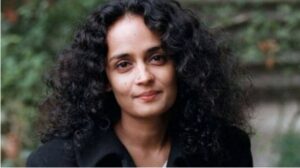
Image Courtesy of Penguin Random House India
Sexual prowess is something every human being experiences, especially when that human being is full of loneliness. In the Indian society, women are expected to either get married or to strengthen the rumour of an affair. Mary Roy, on the other hand, directed her sexual energy towards attaining what she did not have and giving the basic resources to those who are in need of it. But even in the presence of these admirable qualities, her hateful behaviour towards Arundhati Roy and LKC (Arundhati’s brother) cannot or should not be nullified. Roy’s escape to Delhi for higher education and pursuing a profession in architecture stemmed from the constant invigilation of her attire, her looks, and her body by Mary Roy. But the invigilating eyes of her mother did not leave Roy alone. When Roy confessed that she had a boyfriend, her mother was furious at her and threw curses at her without being apologetic. Her isolation became more evident and even after pursuing everything she liked, the isolation did not diminish since it was inserted in her mind, slowly but with intensity. It shaped her life and writing became her way of vomiting this loneliness.
Mother Mary Comes to Me is a reminder of what a memoir should be like and how literature can liberate us from our own wounds. The book is not a cruel take on Mary Roy. In fact, the writer decided to write about her mother’s life in unison with hers, in the tipping point of the latter’s death. The book has been brewing in her mind from her childhood, but it sprouted when Mary Roy cribbed on the identity of the doctors treating her, which made the writer question her own belief system which was inertly protesting against Mary Roy even in her sickness. A memoir that is deeply humane, but is not preachy. It is disturbing since our moral fabrics are not conditioned to process an individual, especially a woman, criticizing her mother and, at the same time, calling her “the most enthralling subject”. Arundhati Roy solidifies her position yet again as one of the best writers writing out there with this book. Readers get to notice that the ideas that Roy backs and preaches in public is the idea that she has been implementing in her personal life as well. The memoir is a pill that is going to taste bitter in our mouths, but can heal us with its ultimate intention.
Arundhati Roy is the author of the novels The God of Small Things, which won the Booker Prize in 1997, and The Ministry of Utmost Happiness, which was longlisted for the Booker Prize in 2017. Her non-fiction includes My Seditious Heart, Azadi and, most recently, her memoir Mother Mary Comes to Me. She lives in Delhi.
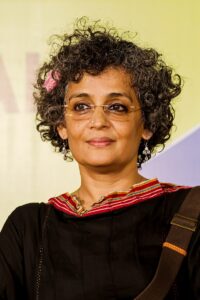
Kabir Deb is the interviews editor at Usawa Literary Review.


